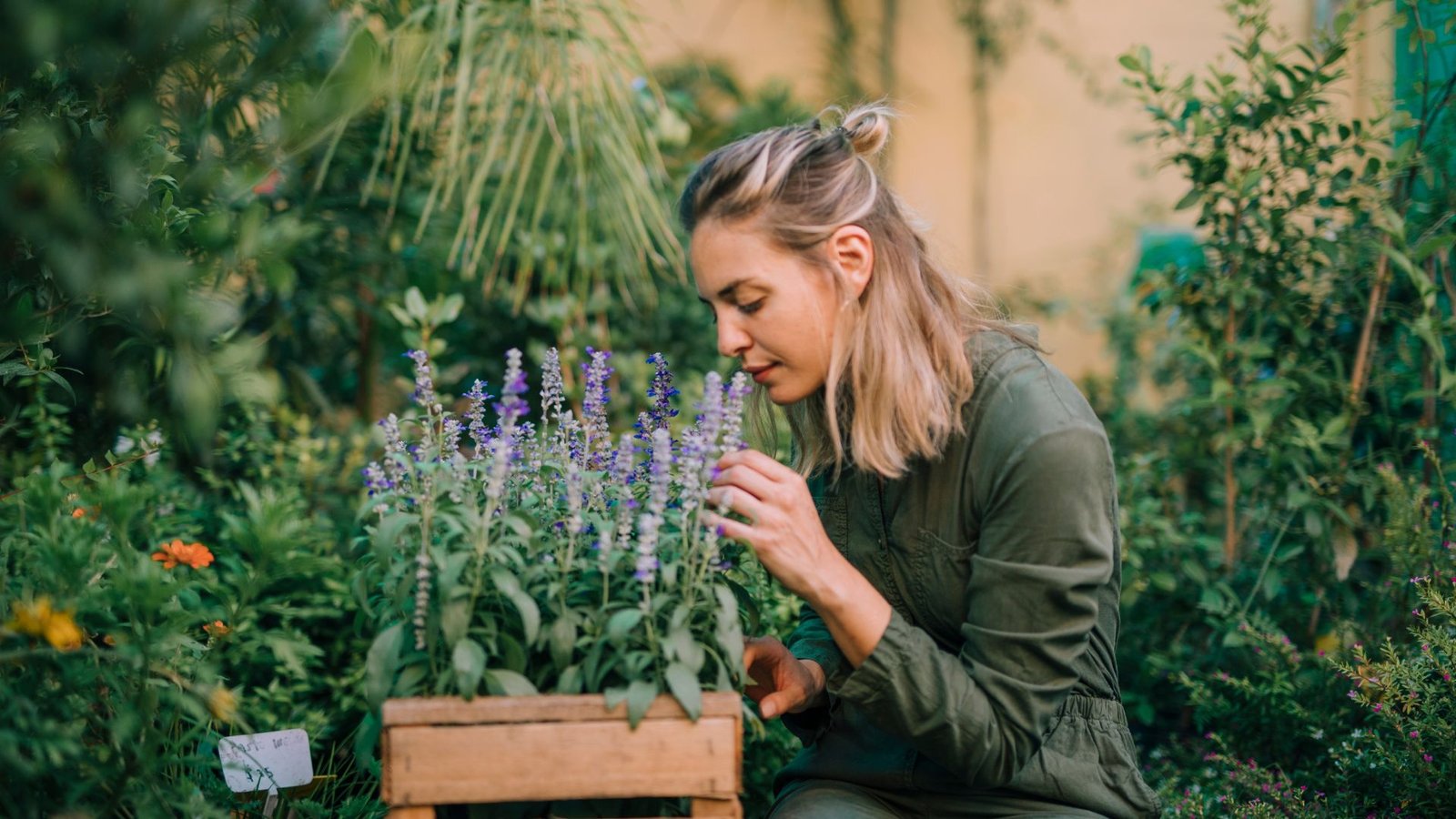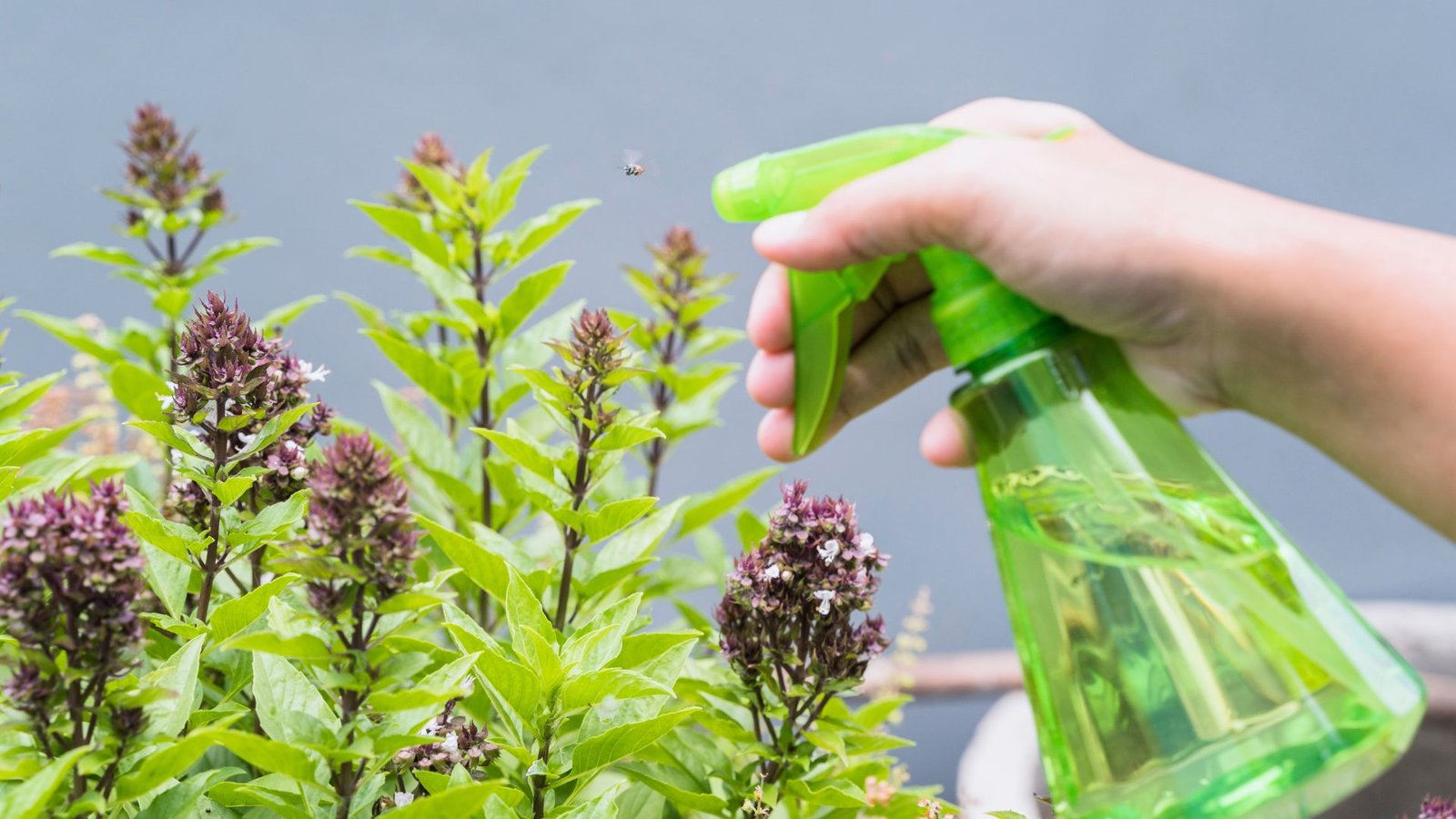Lavender is not only a beautiful and aromatic addition to your garden, but it also serves as an effective natural lavender plant insect repellent . Known for its lavender fragrance, this versatile plant can help protect your garden and home from a variety of pests without the use of harsh chemicals.
Utilizing lavender plant insect repellent properties you will be able to stop moths, mosquitoes, rodents, and flies away. Essential oils, which are with a high concentration of compounds, such as the chemical linalool, makes it a potent tool for organic pest control. If you plant it in your backyard or used inside, lavender provides an environmentally sustainable solution to pest control that is eco-friendly as well as very effective. Lavender plant insect repellent read this instruction and you will grow good lavender plant.
Lavender as a Natural Pest Repellent
This plant is more than just a pretty flower in your garden. It has a long history of being used as an insect-repelling flower. The plant’s insect repellent qualities are widely known throughout the world. The strong aroma of lavender can be unpleasant for numerous pests like moths, flies, mosquitoes and even rodents. Incorporating the lavender in your garden, you’re creating a fence which is able to keep out unwanted visitors. Lavender plant insect repellent follow this way.

What differentiates lavender among the environmentally friendly pest repellents is that it’s not only efficient, but it helps protect the ecosystem. Contrary to chemical insecticides, which can harm beneficial pollinators and insects the natural repellent of lavender is and without harming the environment. It’s a vital instrument for anyone looking to ensure their garden is free of chemicals and safe.
How Does Lavender Repel Pests?
Lavender works as an effective pest repellent due to the lavender fragrance produced by its essential oils. When pests come in contact with these oils their sensory systems are affected. This can make the pests unable to find food sources and navigate their surroundings. Lavender essential oil is believed to deter moths, mosquitoes, fleas and flies.
The reason that lavender is so effective is due to its chemical component camphor as well as Linalool. These chemicals impede the insects’ sensory receptors, which makes them feel confused and disoriented. It’s a natural way to repel pests, without harming the ecosystem. If you opt for lavender as an organic pest control you’re selecting a method that’s in harmony with the natural environment.
Lavender – A Natural Defense Against Common Garden Pests
Lavender is an ideal choice for natural garden protection. It can be planted strategically in the garden to ward off common pests that harm your crops. Lavender companion planting is a fantastic technique. By planting lavender next to vegetables like tomatoes, cabbage, and herbs like rosemary, you can keep aphids, beetles, and whiteflies at bay. These pests are not fond of lavender’s scent, which makes your garden safer without any additional effort.

It also serves as natural protection against pests that can be harmful. If it is planted along the border of your garden or around plant beds it forms a barrier that protects your plants. The appeal of lavender is not just the fact that it can ward off insects, but also in the way it effortlessly blends into the garden of any style.
If you are tired of battling mosquitoes on your patio or backyard, lavender is your ally. Repelling mosquitoes with lavender is one of the most common uses for this fragrant herb. The strong scent of lavender masks the scents that attract mosquitoes, making it an ideal solution for mosquito control.
For a mosquito repellent arrangement, plant lavender in places where mosquitoes are likely to congregate. You can also apply lavender pesticide made by mixing essential oils of lavender with water to spray outdoor areas. In addition to enjoying the fewer mosquito bites, you’ll also be able to appreciate the beautiful lavender plant when you relax in the sun.
Lavender as a Moth Repellent: Protect Your Wardrobe
Lavender’s abilities extend beyond the garden. It is also a great way to shield your clothes from moths. The scent of lavender in your home is the most effective method to deter moths from your storage and closets. The scent of lavender can repel moths and prevent them from taking your clothes and other fabrics, particularly natural fibers like wool.
To protect your wardrobe, consider making lavender sachets. Place dried lavender flowers in a tiny cloth bag and then place them into closets or drawers. This simple solution will ensure that moths do not damage your clothing and you’ll be able to enjoy the delicate aroma of lavender each when you open the door to the closet. Lavender plant insect repellent read this article.
Lavender for Deer and Rodent Control: A Garden’s Best Friend
Deer and rodents can be a major problem in many gardens. Fortunately, lavender can help. Both deer and rodents are repelled by the strong lavender fragrance. By planting lavender around your garden, you create a natural way to keep pests away, specifically those that are known for damaging your plants.
Lavender’s strong scent is often enough to keep deer from nibbling on your plants. Additionally, lavender helps to deter rodents like mice and squirrels, which are known to invade gardens and homes. This makes lavender a great, all-around solution for maintaining a pest-free garden.
Creating a Pest-Free Garden Using Lavender and Other Natural Repellents
Lavender is a great addition to other natural insect repellents to make a strong insect-free garden. The companion planting of lavender is an excellent method to build a diverse and pest-resistant garden. Combining lavender with other plants such as marigolds, rosemary, and citronella provides a secure space in your yard. The plants are a perfect match with each offering a unique way of preventing pests naturally.
To ensure the best outcomes and the greatest benefit you should also create the lavender-based pesticide yourself. This is accomplished by soaking the flowers of lavender in water, then spraying them directly on your plants. This simple solution doesn’t only repel insects, but can also be used as an organic gentle pesticide safe for your garden.
Additional Benefits of Lavender: More Than Just a Pest Repellent
Lavender isn’t just useful to control pests, it also has many other advantages that make it an ideal gardening addition. For instance, lavender draws pollinators, such as butterflies and bees. This improves the overall health of your garden by making sure that the plant is pollinated. It also helps maintain the balance of the ecosystem through attracting good insects and keeping away harmful ones.
Beyond the garden beyond the gardens The lavender plant is renowned for its calming properties. Essential oils extracted from the plants are often used in aromatherapy to reduce tension and promote relaxation. The oil of lavender can help alleviate itchy skin and insect bites. Therefore, lavender is used for numerous purposes in the garden and in the house. Lavender plant insect repellent is very easy method .
Lavender Earl Grey Tea Loaf: A Unique Culinary Use of Lavender
It’s not only useful in the garden or in your home, but it’s also a fantastic choice for kitchens. . The cake combines the scent of lavender with the flavor of savory which comes from Earl Grey tea, making it a tasty dessert. Lavender plant insect repellent is follow this instruction.
For this recipe, make the strongest glass of Earl Grey tea and mix it with dried lavender flowers into the batter. It’s a moist and delicious loaf that is perfect with the tea. Lavender is a great ingredient to cook with. It imparts the subtle floral scent that is a perfect complement to various baked goods and desserts which makes it an extremely versatile ingredient in the kitchen.
Conclusion: Embrace Lavender for a Pest-Free, Natural Garden
Lavender is an amazing plant that has practical as well as aesthetic advantages. As a natural insect repellent it helps keep your garden free of dangerous insects, mosquitoes and rodents too. When you incorporate lavender into your garden, you’re not only creating an appealing garden while making a shift towards eco-friendly pest control techniques that aren’t harmful to the environment.
Lavender’s natural remedies for pests, as well as its numerous advantages, such as the ability to attract pollinators as well as its relaxing effects are what make it a vital plant to have in your garden. If you choose to use lavender to combat insects naturally and effectively you will be able to enjoy an environment that is a well-groomed and healthy area without harmful substances as well as insects.



